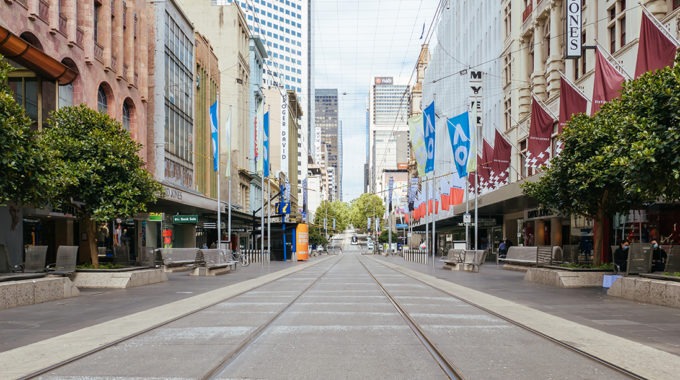Melbourne lockdowns: venues battle on
The financial burden of Melbourne lockdowns on hospitality venues has been significant and, in some cases, businesses have had to close their doors for good. However, the long-term impact of COVID on the city’s restaurant and cafe scene will be much more profound than simple dollars and cents. Eativity speaks with four venue owners about their experiences over the past four lockdowns, and discovers that a remarkable amount of resilience and optimism remains despite the ongoing struggle of COVID’s new normal.
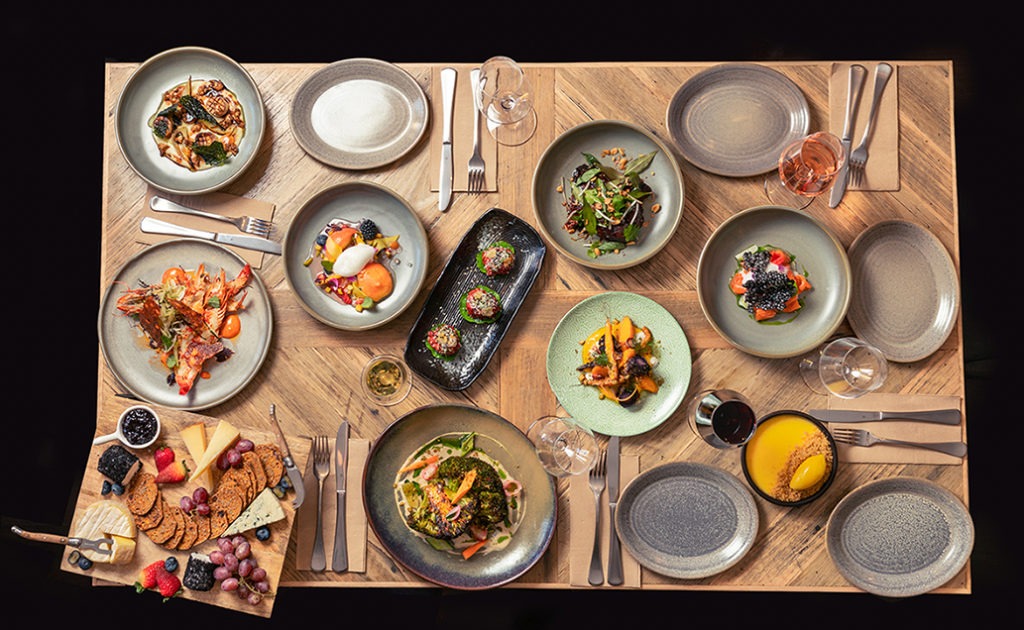
Yes, we’re open! Er, no we’re not
Collingwood restaurant Sixty Smith has attempted to open multiple times over the past year and a half. But each time, lockdown scuppered plans to get the business up and running.
“We were shut down when the first lockdown started, so then we renovated the restaurant and reopened in July,” says Sam Silva, owner of Sixty Smith and the Fitzroy Beer Garden. “We opened for seven days, then we had to close again. Then we opened in October but had to close again in February, and then we’re closed again this time. We keep opening and closing, and we are going through lots of money.”
Silva has done his best to help staff at both venues through all four lockdowns, particularly his international staff, who are ineligible for any government support.
“I carried about six of them last lockdown for eight months,” he says. “For this lockdown, we are just surviving. If it goes much longer, I don’t think we can survive anymore.”
For Pat Alé, co-founder of Deeds Brewing, a plan to launch the new public venue Deeds Taproom and Kitchen in Glen Iris next weekend is now up in the air.
“Obtaining the permit and then building the Taproom has been a four-year process with the council, with a six-month build,” he says. “So this lockdown has created a further delay that has been both frustrating and challenging.
“We had a very busy launch program planned. All of that is now on hold until we have confirmation from the government on when we can open. Even when we do open, it’s unlikely to be at the 150-person capacity that we’re allowed at our venue.”
Ale is now faced with the question of whether it’s still worth opening the venue if there is to be a significant reduction of permitted patron numbers.
“There’s also the fact that we need to have a strong launch for the long-term success of our venue,” he says. “But we are exploring the prospect of home delivery. We’ve also opened bookings from July 1, so our hope is for Melbourne to be fully open by then.”
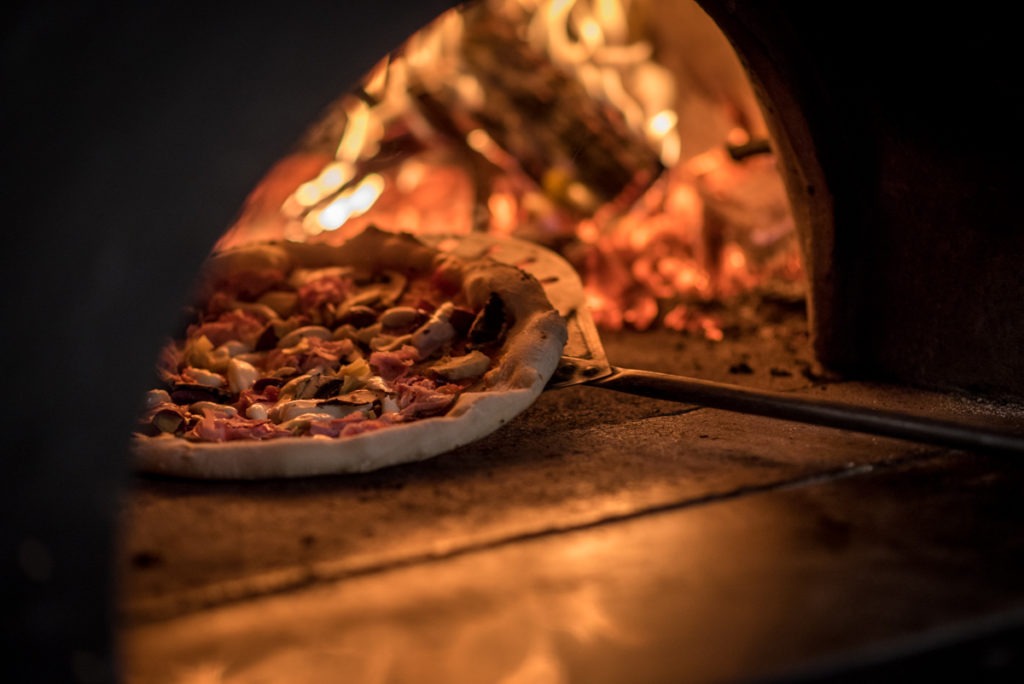
Lockdown again?
For Dave Mackintosh, owner of Melbourne venues Pope Joan, IDES, Lee Ho Fook and SPQR Pizzeria, this latest lockdown comes with a sense of both weariness and frustration.
“It should never have happened,” he says of the latest lockdown. “Of course there are going to be outbreaks of COVID. But if we were vaccinated at a higher percentage, and vulnerable people had been completely vaccinated, we wouldn’t need another lockdown.
“The lockdowns last year were annoying, but this one is really aggravating. Because it should never have got to this point. The people responsible for the vaccine rollout should be doing a better job. But instead, the rest of the community is paying the price again.”
While businesses that previously offered takeaway dining options are able to switch back to lockdown mode fairly easily, this doesn’t mean there’s any joy in it.
“It’s like, really, again? Meal boxes again? Driving around suburbs dropping things off at people’s homes again?” Mackintosh says. “There’s a sort of weariness this time around.
“Hopefully this doesn’t go too long. Where we can, we’re employing people directly. Otherwise, staff are taking annual leave, but casuals don’t have that. If this lockdown goes on much longer, we’re going to start seeing some real anxiety in the community.”
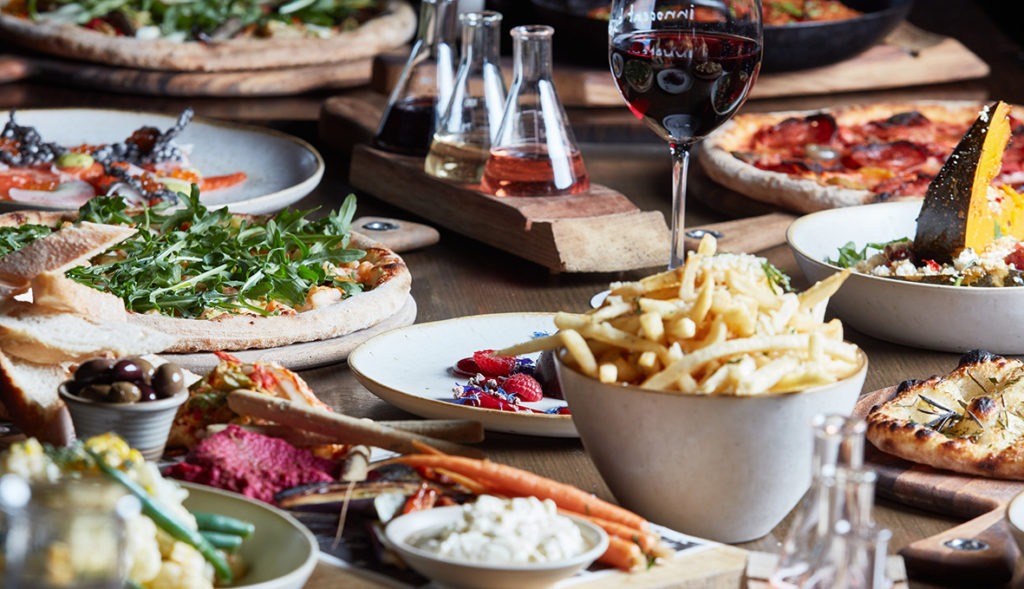
Silver bullets and silver linings
Although they’ve been popular, takeaway options are not an automatic business-saving silver bullet. In fact, many venues that do offer them are still running at a loss. Mat Janes, head of restaurant and winery Innocent Bystander at Healesville in the Yarra Valley, has kept his kitchen open for takeaway even though it’s not financially viable for the business.
“We’ve continued to stay open through almost all lockdowns,” he says. “We wanted to make sure we were open for our team and for the local community, even though Healesville is a tourist town. There’s only so many locals and there are lots of places to buy from.
“And when you go from serving 200 guests to serving 20 takeaways, the staffing that you’re able to maintain and retain is greatly reduced.”
For Mackintosh, keeping Pope Joan open is pointless. The venue is located in the heart of the currently-deserted Melbourne CDB. But Lee Ho Fook and IDES have both been able to offer multi-course takeaway offerings for people to put together at home. And for SPQR, the Melbourne lockdowns have actually led to a whole new arm of the business.
“We’ve actually created a whole new company where we sell part-cooked pizza bases into an ever-growing grocery retail channel,” Mackintosh says. “That’s been very successful, to the point that we’re now actually building a factory. It’s a positive COVID pivot story – a whole new enterprise has been born out of COVID for our pizza business, which we would never have thought about doing previously. So there’s a silver lining there.”
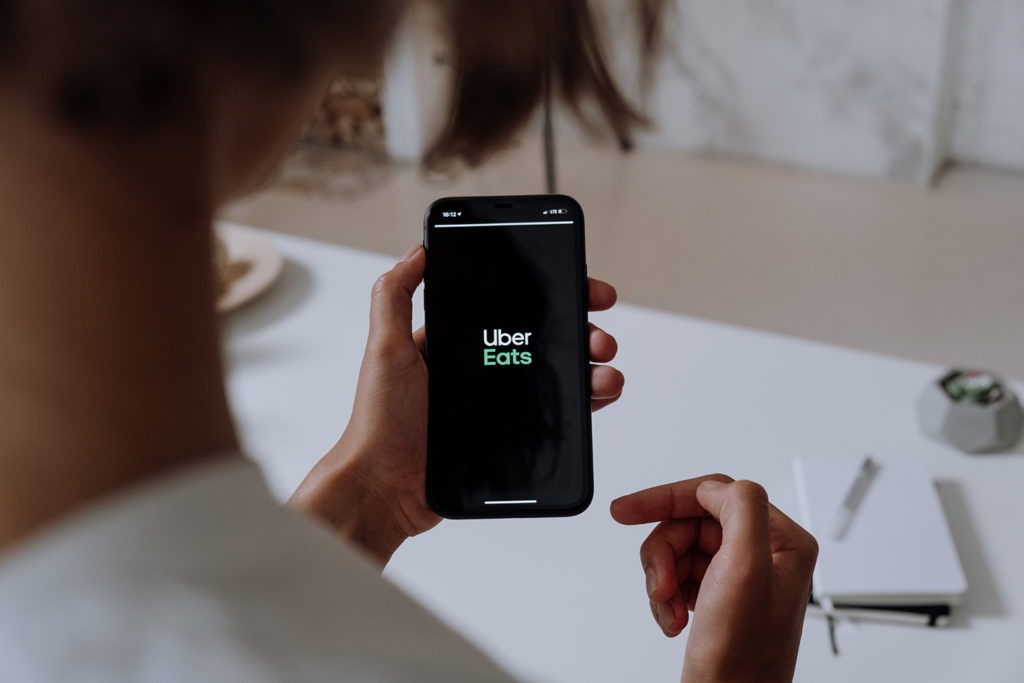
The fallout
Silva has tried takeaway during previous Melbourne lockdowns, but has decided not to do so this time, due to the time and money it takes to generate online business for yet another takeaway choice in what is now an increasingly crowded market.
“We tried it as Fitzroy Beer Garden last time, and we didn’t have any pick-ups for at least a month,” he says. “Even after we did, it was only about four or five meals a day.
“How Uber Eats and the like works is based on how many people use your service on the app; that’s how you get more hits. When you’re a new customer, it takes at least one or two months for people to find you. By the time you get there, you’ve had to pay chefs and staff and the cost of goods. It’s just not viable. It’s not a business. People do business to make money. At the moment it’s pretty much just paying the bills and trying to survive.”
Even once the lockdown ends, hospitality venues still face another uphill battle to build up their business yet again. This also comes at a significant cost.
“What people don’t realise is that after we shut down, it takes at least a month or two to build things back up again,” Silva says. “And you’re losing money for that two months.”
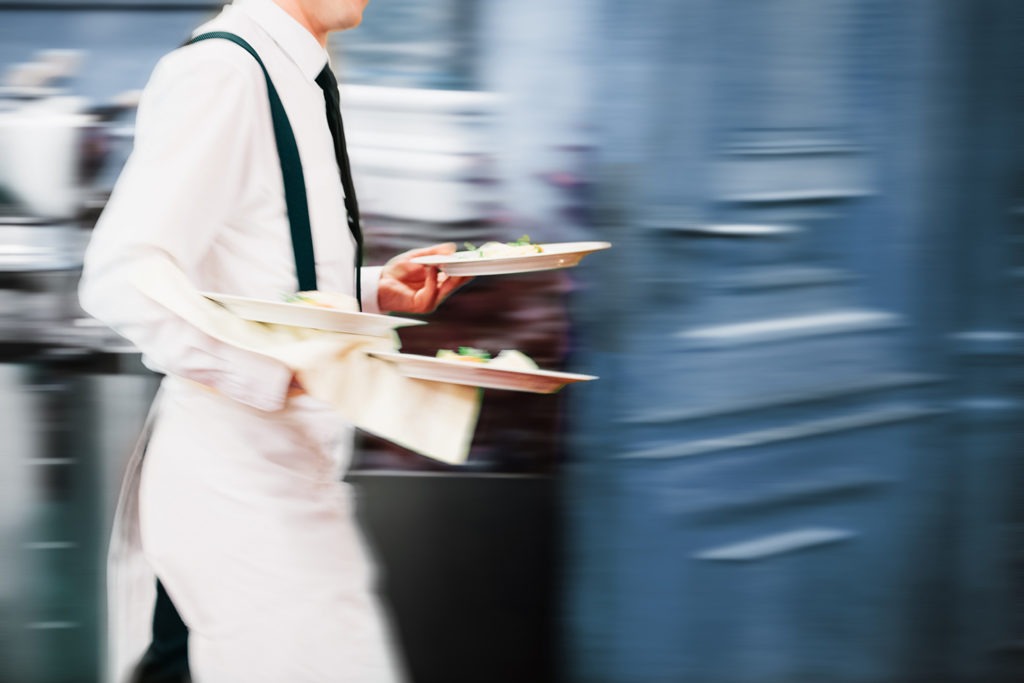
Teamwork makes the dream work
While the short-term impact of Melbourne lockdowns might be mostly a financial one, the long-term effects of COVID-19 on Melbourne’s hospitality industry will be much more far-reaching. For some venues, it might mean closing not just for lockdown, but for good.
“Last lockdown, lots of businesses had to cut back,” Silva says. “And if we keep going like this, lots of business are not going to come back again.”
Staffing in both the immediate and long term is now a major issue for restaurant owners, who have long relied on international workers to fill available roles. For many young locals, situations like this also mean they’ll be less likely to consider hospitality as a career path.
“That’s the actual long-term damage,” Janes says. “The short-term damage is the difficulty of managing food waste and customer relationships and all that sort of thing. But the long-term impact is actually around the viability of employment in the business.
“Unless we can get international workers back into the country and rebuild the staffing pool, businesses will have to change their operating model significantly in order to operate.”
Finding staff to work at your venue is not as easy as simply hiring anyone who wants a job. Hospitality work requires a specific skill set that can’t be learned overnight.
“There’s no quick fix with a short-term course at TAFE that could magically just be created,” Mackintosh says. “It takes four or five years to become a half-decent chef. Sommeliers spend years perfecting their craft, as do restaurant managers. It’s disingenuous to say that we can magically just hire every available Australian who wants a job.”
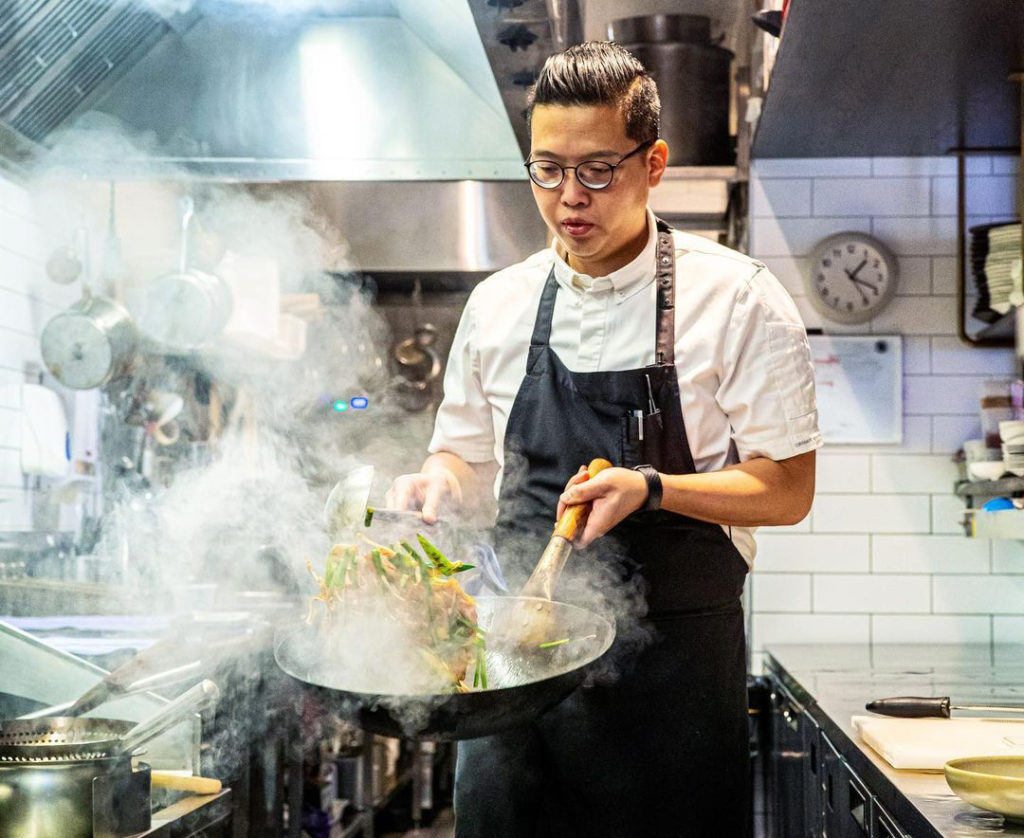
Picking up the pieces
Right now, Melbourne’s hospitality operators just want to get back to doing business so they can start picking up the pieces once again. Fortunately, the local community has continued to show the industry its support throughout every lockdown.
“We’ve been super fortunate as we’ve been in the community now for the best part of 20 years,” Janes says. “That’s one thing that businesses learned pretty rapidly last year. If you didn’t have a local support base during those initial lockdowns, then you couldn’t create one. You had to have built it over a period of time to get that local support.”
Mackintosh and his staff have been buoyed by the support the various venues have received from the local community over the past 18 months.
“There’s an absolutely brilliant community out there,” he says. “No questions asked, people want to help. They buy meal boxes, not because they’re hungry, but because they want to help. There’s been a tremendous amount of goodwill within the community.
“I think everyone has realised that if they don’t support local hospitality; if they don’t support their favourite cafe or other business that they love, they probably won’t be around for them to go to when everything’s alright again.”
It’s clear that Melbourne’s hospitality industry will survive, but it’s unlikely it will be the same industry that it was pre-COVID. However, there are positives even in this scenario.
“I think the industry will be okay,” Mackintosh says. “There will still be an industry. Whether it will have the same people in it or not? That’s the question.
“There’s an opportunity for people to have a pretty thorough look at what they’re doing. Some of the main issues in hospitality predate COVID. We had skills issues, we had shocking behaviour by bosses who weren’t doing the right thing by their staff way before COVID. And so, if one of the outcomes is that some of those people who should probably never have been in business in the first place no longer are, well, I’m not going to be too upset.”


